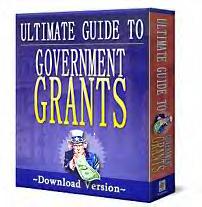|
|

|
|
FICO
|
The first time I heard the acronym, FICO, I was lying in my bed watching
The Suze Orman Show. I thought, “what in the world is that?” Then she
went on to explain that it’s simply a person’s credit score. A California-based
company called Fair Isaac Corporation first developed FICO. FICO scores
place a value on the types of accounts you hold and your credit history.
The FICO scoring scale ranges from 300 to 850, with the majority of
people in the United States falling over 600.
There are 5 factors that determine a person’s FICO credit score. First,
your payment history—this counts for a whooping 35%--the most of any
other factor. Obviously, paying your bills on time is scored as great,
while paying them late on a consistent basis is scored as bad. Being
referred to a collection agency is worse, and declaring bankruptcy is
the worst.
The second factor taken into consideration on the score is exactly how
much money you owe, as well as the amount of credit that is currently
available to you. They will add up all of your outstanding loans, such
as car loans, mortgages, and even school loans and then compare that
number to your annual salary. Then, they will add up the amount of credit
available to you, and compare it to what you’re currently using. People
that use all of their available credit (for example, if all of your
credit cards are maxed out) will rate lower than those who don’t. These
factors are worth 30%.
The third factor is the length of your credit history. The longer you
have had credit, the higher the FICO score will be for this section.
In addition, if you’ve had a long-standing credit agreement with one
party, you’ll do even better on this aspect of the scoring process.
This third factor counts as 15% toward you final score.
The fourth factor taken into consideration is the type of credit mix
that you have. For example, do you have only unsecured credit loans
(high risk), or do you also have some solid secured loans such as mortgages
and automobile loans? Consumers with a mix of credit have higher FICO
scores. This fourth factor counts only 10%.
The last factor in the rating is the amount of new applications that
you fill out. If you have filled out a lot recently, this will hurt
your score because it puts lenders “on alert” that something may be
wrong. This part of the score is worth 10%.
Although, lenders typically look at employment, income, length at current
residence, and marital status, your FICO score will not be affected
by these factors. The prospect of having a bad FICO score should scare
anyone who plans on borrowing money for the future. If your FICO score
is low, this could mean high interest rates, extra mortgage insurance
when buying a home, or in some cases denial of the loan.
It’s not a bad idea to get a copy of your credit report 6 months prior
to seeking a large loan, and then look over your history to make sure
that there are no discrepancies. If inaccuracies are found, contact
the Credit Reporting Agency in writing; they have 30 days to investigate
it, and then correct it if they find truth to your claims. You may also
want to ask for a revised credit report; they are required by law to
supply you with one if an inaccuracy is found and corrected.
About The Author:
Peter Dobler is a veteran in the IT business. His passion for experimenting
with new internet marketing strategies leads him to explore new niche
markets.
Read more about his experience with credit and mortgages; visit
Credit
Score Information Directory
Other Credit And Real Estate Related Information
|
American Grant
Provider Directory
 The
Federal Government and Private Grant Foundations issue billions
of dollars in grant money to a variety of groups each year.
Grants are awarded to individuals each and every day from all
walks of life, with large and very small bank accounts, for
an ever-increasing array of purposes. The
Federal Government and Private Grant Foundations issue billions
of dollars in grant money to a variety of groups each year.
Grants are awarded to individuals each and every day from all
walks of life, with large and very small bank accounts, for
an ever-increasing array of purposes.
Grant programs are not Loans.
You decide how much you need. As long as the amount is lawful
and you meet the Foundations and Government Agencies Requirements,
the money is yours to keep and never needs to be repaid. This
grant money is non-taxable and interest-free!
Get more information
|
|
Do You Have
Bad Credit?
Don't give up!!
Our list of lenders and credit card
companies are willing to give you another shot. They realize
that good people can have bad credit.
Whether you have
had minor problems in the past or even bankruptcy, our lenders
are there to help you not only receive a loan, but also to re-establish
your credit.
Are you ready to
get your second chance?
Get more information
|
|
Mortgage Loan Tips
 "Excellent
for first time buyers, move-up buyers or refinancing. I cannot
recommend it highly enough - this should be required reading
for anyone who wants to get a loan." "Excellent
for first time buyers, move-up buyers or refinancing. I cannot
recommend it highly enough - this should be required reading
for anyone who wants to get a loan."
M. Klinger, Real Estate Broker
Aventura, FL
Get more information
|
|
Credit Repair
- Erase Bad Credit Now!
 Are
you tired of Bad Credit? - High Interest Rates? Disapproved
Credit? Are
you tired of Bad Credit? - High Interest Rates? Disapproved
Credit?
Use my experience today, and I will show you
how to get every negative item Removed from your Credit Reports
within 1-3 Months. Guaranteed!
Get more information
|
|
Credit Secrets
 "How
to Clean Up your Credit Report and Wipe All Your Credit Card
Debts in Record Time!" "How
to Clean Up your Credit Report and Wipe All Your Credit Card
Debts in Record Time!"
Take a moment to imagine this...
On any given day you could be receiving new pre-approved credit
card offers in the mail, you could able to purchase a new home
without worrying about qualifying for a mortgage, financing
for automobiles and boats could be readily available to you,
and...you could have piece of mind knowing that should an emergency
arrive you would have the resources to take care of you and
your family.
Get more information
|
|